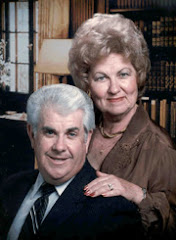 Prayer is a part of daily life for most of the people on this earth. Moslems, Hindu, Buddhist, Jews, Christian, - the list is endless. And even those who don’t believe in a higher power will often act very much like they do during a time of crisis. As the old saying goes, there are no atheists in foxholes.
Prayer is a part of daily life for most of the people on this earth. Moslems, Hindu, Buddhist, Jews, Christian, - the list is endless. And even those who don’t believe in a higher power will often act very much like they do during a time of crisis. As the old saying goes, there are no atheists in foxholes.Endless prayers by the millions are prayed each day. Years ago I walked through the mountains of Japan and saw prayers written on paper, tied to sacred trees and carried away by the winds. In the Far East I’ve watched Buddhist endlessly spin their prayer wheels, pray in front of Giant images of Buddha, some painted and others covered with gold leaf.
In Singapore I went into a temple called the house of ten thousand Gods and saw people praying before an endless array of images representing every kind of God imaginable. I’ve watched them light candles, incense sticks, repeatedly throw moon-shaped blocks on the floor until they fell the right way. I've seen them present offering of fruit and vegetables to their silent God.
I've personally been blessed all through my life to have many prayers answered... sometimes in spectacular ways.
C. S. Lewis said: “We don’t get our prayers answered because prayer is weak but because it’s powerful and strong. Prayer is so strong that if God’s didn’t reserve for himself the right to say no it would be an activity too dangerous for man".
He went on to say that there is no difference between prayer and works. By works we are trying to change and affect circumstances around us, and by praying we are doing exactly the same thing. “It’s no more strange,” observed Lewis, “that God would allow us to change things by works than that he would allow us to do the same thing by prayer.”
Jesus prayed at the grave of Lazarus and said: “I thank you Father that you always hear me.” His request was granted and Lazarus came out of his grave. But later in the Garden Jesus prayed three times for the cup to pass and finally said: “Not my will but thine be done.” He accepted the Father’s better plan.
The simple question is this: Has Jesus made certain promises that takes God off of his throne, abdicated his rule over this world and by the words of Jesus given to man the right to do whatever he thinks best? Has God really given to man the right to speak into existence anything he wants?
It’s really scary when we try to picture the perfect candidate to wield such enormous power. Think of any TV preacher, Pastor, teacher, church deacon, or religious person, and then imagine them being in complete control of this whole earth.
If the “seed faith gimmic” really worked all these false teachers would have to do is to “plant their own seed offerings regularly” and they would soon have so much money they wouldn’t know what to do with it.
So---what is the rule that makes prayer successful? Jesus was submissive to the Father’s will. In John 14 Jesus told his disciples that if they loved him they would obey him. If they didn’t obey him they didn’t love him.
Faithfully obeying the inner voice of God Spirit inside us is the real meaning of "Asking in the name of Jesus..." In verse 31 Jesus said: “...the world must learn that I love the Father and that I do exactly what my Father has commanded me.”
The true believing Christian always has his prayers answered in God’s own perfect way. God often replaces our misguided and shortsighted request with his own eternal wisdom and all things work together for good for those who love him.


I love this article and you are exactly right, but there is always a nagging subconscious problem for me.
ReplyDeleteI do want God to be in control. But when I pray for specifics aren't I taking control out of his hands?
And what about all those times I've pray with true sincerity and he has answered no. I don't want to beg him. I don't want to be out of God's will, yet I do want my prayer answered. Can you tell me how to deal with those issues?
Hi Debbie:
ReplyDeleteThanks for the comment. Your problem of still wanting your prayers answered when God obviously said no is common to all of us. C.S. Lewis cleared it up when he wrote:
“It is not unreasonable for a headmaster to say, Such and such things you may do according to the fixed rules of this school. But other things are too dangerous to be left to general rules.
If you want to do them you must come and make a request and talk over the whole matter with me in my Study. And then—we will see.”
For me the best thing to do when God has obviously said no is to again go to prayer and talk it all over with our kind and loving Lord. From that we often feel comforted and are willing to leave the matter in his gracious hands.